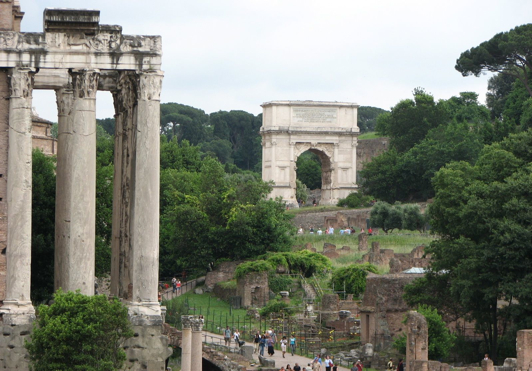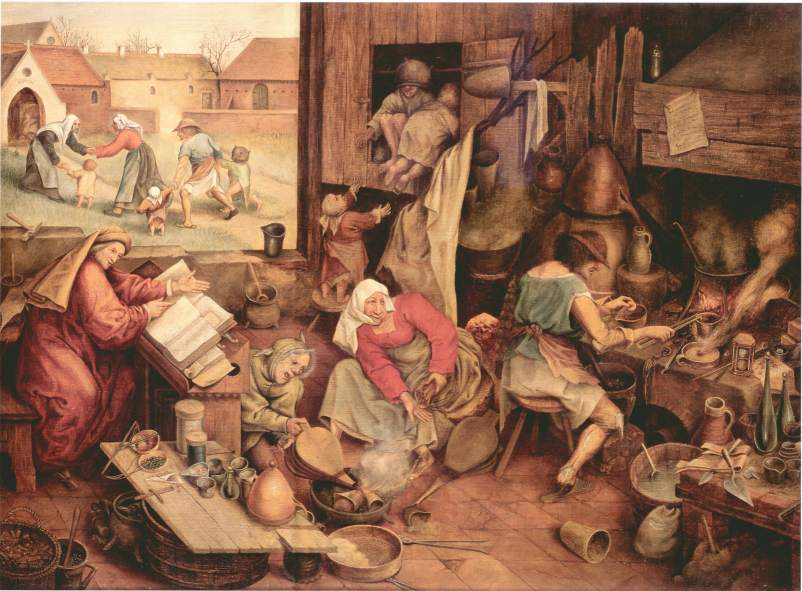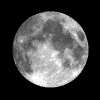


"This aptness of language is one thing that makes people believe in the truth of your story."
Aristotle,
p. 3.
"Continuous employment of the best possible word"
Winston Churchill,
p. 21.
"repetition, the re-experiencing of something identical, is clearly in itself a source of pleasure,"
Sigmund Freud
p. 29.
"rhetoric makes the orator, 'next to the omnipotent God in the power of persuasion."
The Garden of Eloquence (An Elizabethan text; 1593.)
p. 36.
Frequently use these figures of speech
- alliteration, the sound is repeated: "bye, bye, Baby, bye, bye!"
- anaphora, repeating the same phrase to start sequential sentences
- epistrophe, when many clauses end the same.
- chiasmus, a reversal of the same phrase: "It is not the men in my life; it is the life in my men!" Mae West
- ploce, use of a drumbeat repetition.
pp. 33-46.
When "rhetoric had entirely replaced the substance," any speaker, writer or singer will be in trouble.
p. 49.
"To conclude, wowing people requires the repetition of words and phrases, while winning them over requires the repetition of slogans, sentences and ideas."
p. 51 .
"Our words hide as much as they may reveal."
"Yet, Brutus is an honorable man."
Mark Antony's funeral oration. Shakespeare's Julius Caesar
"Irony is a defining feature...of great stories....you must master irony in all its forms."
p. 53.
Trap him "into seeing the truth."
Socratic technique,
p. 54.
Reinhold Niebuhr, The Irony of American History. 1952
"We also have some awareness of an element of tragedy in this struggle, which does not fit into the obvious pattern. Could there be a clearer tragic dilemma than that which faces our civilization? Though confident of its virtue, it must yet hold atomic bombs ready for use so as to prevent a possible world conflagration. It may actually make the conflict the more inevitable by this threat; and yet it cannot abandon the threat....
Such a tragic dilemma is an impressive aspect of our contemporary situation. But tragic elements in present history are not as significant as the ironic ones."
Niebuhr, The Irony of American History. Chapter 1.
Historian Arthur Schlesinger Jr. in the New York Times called Niebuhr,
“The supreme American theologian of the twentieth century.”“How wonderful that we have met with a paradox. Now we have some hope of making progress.”
—Niels Bohr
"A a theatrical device the essence of foreshadowing" Anton Checkov and William Shakespeare are masters.
"Create anticipation and then fulfill the listener's desire."
p. 83.
"Foreshadowing is the flip side, or more accurately, the prequel of repetition–and of irony, as well, for if a person's words or deeds are to become ironic, they must be foreshadowed, they must be hinted at early on."
Ibid.
Omens, or ominous events are preludes to an outcome a writer or speaker starts with in order to hint to us, as readers, about something hidden that will eventually appear."
"The greatest thing by far is to be master of metaphor."
"But the greatest thing by far is to have a command of metaphor. This alone cannot be imparted by another; it is the mark of genius, for to make good metaphors implies an eye for resemblances.
Of the various kinds of words, the compound are best adapted to dithyrambs, rare words to heroic poetry, metaphors to iambic. In heroic poetry, indeed, all these varieties are serviceable. But in iambic verse, which reproduces, as far as may be, familiar speech, the most appropriate words are those which are found even in prose."
Aristotle. Poetics, Part xxii.
"a good metaphor implies intuitive perception of the similarity in dissimilars." [emphasis italics, his].
quoted on pp. 99-100.
What is in a metaphor?
"They reflect the very structure of our thinking and of our brain itself."
p. 100.
"Evening may therefore be called, 'the old age of the day,' and old age, 'the evening of life,' or, in the phrase of Empedocles, 'life's setting sun.' For some of the terms of the proportion there is at times no word in existence; still the metaphor may be used. For instance, to scatter seed is called sowing: but the action of the sun in scattering his rays is nameless. Still this process bears to the sun the same relation as sowing to the seed. Hence the expression of the poet 'sowing the god-created light.' There is another way in which this kind of metaphor may be employed."
Aristotle, Poetics Part XXI.
"Extended metaphor is, for me, the most important rhetorical device."
"Like the best figures, extended metaphors make ideas and phrases more memorable, expanding the vivid visual imagery painted by a single metaphor to create an entire mental mural for the audience."
"…extended metaphors force you to think–and in a deeper way than most figures."
THE COMMON qualities of Lady Gaga's songs and Abraham Lincoln's address:
"Lincoln makes his two-hundred and seventy word speech unforgettable using an extended metaphor of birth, death, and resurrection to increase the coherence and the impact of his brief remarks." in the Gettysburg Address.

"The Populace ...Will Surrender to Eloquence."
The dark side of rhetorical argumentation and framing your messages is how we make the weakest assertions seem the most believable, while making true statements appear to be most suspicious.
pp. 146-152.
"Rhetoric cannot tell you what to say …only how to say it in a ... winning," and memorable "way."
Joseph Romm, p. 175.
"The Nation and the Planet face a harsh reality. . . .
of serious global warming and the irreversible consequences of catastrophic climate change."
p. 181.
"In our time, political speech and writing are largely the defense of the indefensible,' wrote George Orwell. 'Political language…is designed to make lies sound truthful and murder respectable, and to give an appearance of solidity to pure wind." Little has changed in the six decades [sixty years] since Orwell wrote "Politics and the English Language."
Romm's raison d'être :
"to give rhetorical ammunition to those fighting ... to end the debasement of political language."
p. 183.
"learn how to harness the power of rhetoric at least as well as those spreading disinformation...."
p. 181.

Aristotle, Poetics.
George Lakoff, The Political Mind.
Neil Postman, Amusing Ourselves to Death.
Language Intelligence: Lessons on persuasion, by Joseph J. Romm. North Charleston, S. C.: Create Space, 2012.
raison d'être is French for reason for existence; in this case the reason he wrote the book.

Guide to Technical climate facts on the web

